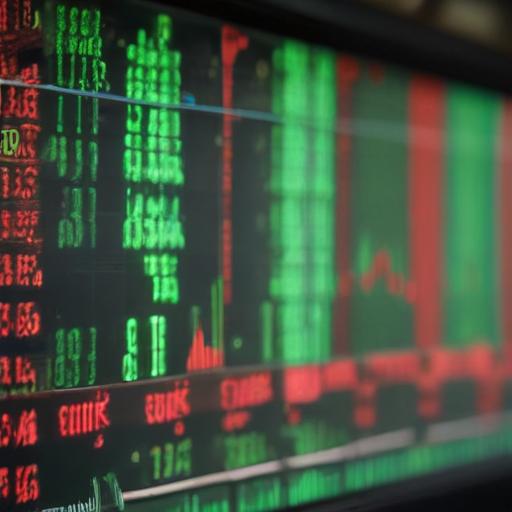Stocks on Wall Street were mixed in Thursday trading as new tariffs implemented by President Donald Trump raised concerns about their impact on the economy. The S&P 500 dipped slightly by 0.1%, while the Dow Jones Industrial Average fell 330 points, or 0.7%. The Nasdaq composite, however, managed a modest gain of 0.4%.
Investors are apprehensive, especially following a disappointing job report last week, which indicated potential weaknesses in the labor market. Despite these concerns, optimism remains as anticipated interest rate cuts from the Federal Reserve and positive profit reports from U.S. corporations have provided some support for the markets. Lower interest rates can stimulate economic growth and enhance investment returns, although they may risk increasing inflation.
The new U.S. tariffs announced were largely anticipated and actually lower than the initial threats posed by Trump. Countries are still negotiating to adjust export tax rates, contributing to the ongoing uncertainty in the market. Some analysts have indicated that the substantial rise in stock prices since the market’s low in April might have created inflated valuations.
Mixed economic reports continued to flow in, with one indicating a slight increase in unemployment benefit applications, which could suggest an uptick in layoffs, although the data is still consistent with recent trends. Conversely, productivity among U.S. workers was reported to have improved more than expected, which could signify that economic growth may proceed without adding to inflationary pressures—an important consideration as tariffs are likely to elevate consumer prices.
Apple’s stock surged by 3% following news of its commitment to enhance its investment in U.S. manufacturing by an additional $100 billion over the next four years. This came after CEO Tim Cook met with Trump, who also declared a 100% tariff on imported computer chips but assured that there would be no tariffs for products manufactured domestically.
On the other hand, DoorDash reported a 4.8% increase in its stock after surpassing quarterly profit estimates, thanks to a rise in customer orders. Duolingo saw an impressive 28.9% increase in its stock following a strong performance that exceeded Wall Street expectations, indicating robust subscriber growth.
However, not all companies fared well. Eli Lilly’s stock dropped by 14.7% despite strong profits, as investor disappointment overshadowed its positive results. Intel faced a 3% decline after Trump publicly criticized its CEO. Crocs plummeted 25.2%, projecting a 9% to 11% decline in revenue for the current quarter due to uncertainty in global trade and tariffs.
Internationally, stock indexes in much of Europe and Asia showed upward trends, with gains in Shanghai and Hong Kong as China’s export activity picked up. Japan’s Nikkei 225 experienced a modest rise, though Toyota’s stock fell due to reduced earnings forecasts linked to the tariffs.
Overall, while some sectors and companies are navigating these turbulent economic waters successfully, others are grappling with the immediate impacts of trade policies and market reactions. The situation remains fluid, with potential opportunities for growth as firms adjust their strategies in response to market conditions.
